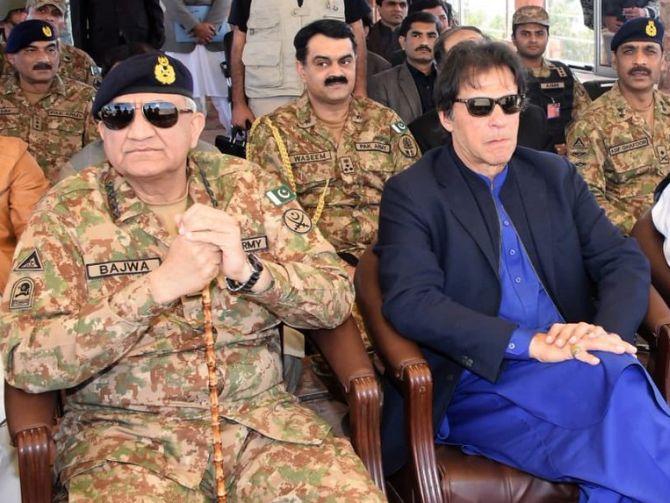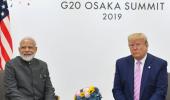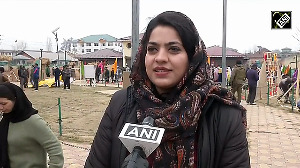
Pakistan Army chief General Qamar Javed Bajwa's term has been extended for another three years by Prime Minister Imran Khan in view of the 'regional security environment', an official announcement said on Monday.
General Bajwa, 58, who was appointed as the chief of Army Staff by former jailed prime minister Nawaz Sharif in November 2016, was to retire in November.
'General Qamar Javed Bajwa is appointed Chief of Army Staff for another term of three years from the date of completion of current tenure,' read the brief notification issued by the Prime Minister's Office.
'The decision has been taken in view of the regional security environment,' the notification said, citing the decision made by Prime Minister Khan, apparently referring to the fresh tension in India-Pakistan relations and the ongoing Afghan peace talks between the United States and the Taliban militants, facilitated by Islamabad.
Commenting on the extension given to the Army chief, Pakistan Foreign Minister Shah Mahmood Qureshi said that it was essential due to the regional situation.
Having served as corps commander of Rawalpindi, Gen Bajwa has vast experience of dealing with issues related to Kashmir and the Line of Control, The Express Tribune reported.
In a country prone to frequent military coups, the army generals who, enforced many years of martial law in Pakistan since independence in 1947, have held power for nearly as long as the civilians.
He has also strengthened the military's grip over the government, including the judiciary and areas of security policy.
Bajwa has been issuing provocative statements, needling India on the Kashmir issue.
In one of his statements, he said the reality of Kashmir was neither changed by an 'illegal piece of paper' in 1947 nor by any action 'now or in future'.
"There can never be a compromise on Kashmir," Gen Bajwa said in his Independence Day message to the nation on August 14.
"Reality of Kashmir was neither changed by an illegal piece of paper in 1947 nor will any other do it now or in future," he said, apparently referring to Jammu and Kashmir's accession to India and rejecting India's recent revocation of the special status for Jammu and Kashmir.
Gen Bajwa is the second army chief to get full term extension in recent times. Earlier, Gen Ashfaq Pervaiz Kayani was given a full term in 2010.
Earlier, there were reports that Prime Minister Khan may give another term to Bajwa as both were working closely.
Bajwa accompanied Khan on his maiden US visit during which he met US President Donald Trump at the White House.
Khan had also nominated Bajwa as a member of the National Development Council, in an unprecedented move.
In Pakistan, the appointment of the Army chief is the prerogative of the Prime Minister and his government.
The practice of the senior most being made the chief is not followed.
Bajwa's extension comes amidst worsening ties between India and Pakistan following India's decision to revoke Jammu and Kashmir's special status under Article 370.
Reacting to India's decision, Pakistan expelled the Indian High Commissioner, after deciding to downgrade diplomatic ties with New Delhi.
Pakistan also suspended its trade relations with India in retaliation against New Delhi's decision.
India has categorically told the international community that its move to scrap Article 370 of the Constitution revoking the special status to Jammu and Kashmir was an internal matter and has also advised Pakistan to accept the reality.











 © 2025
© 2025